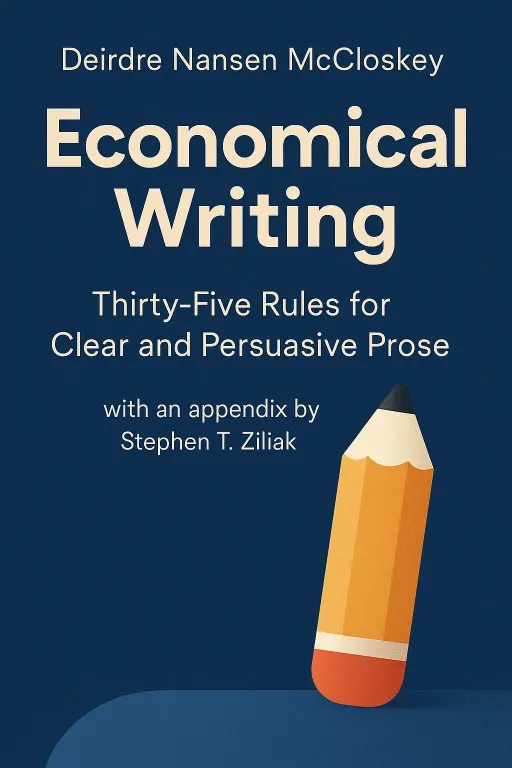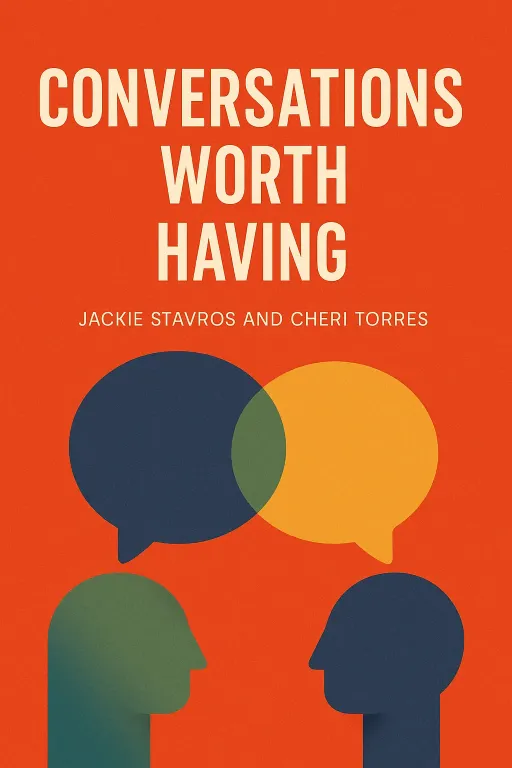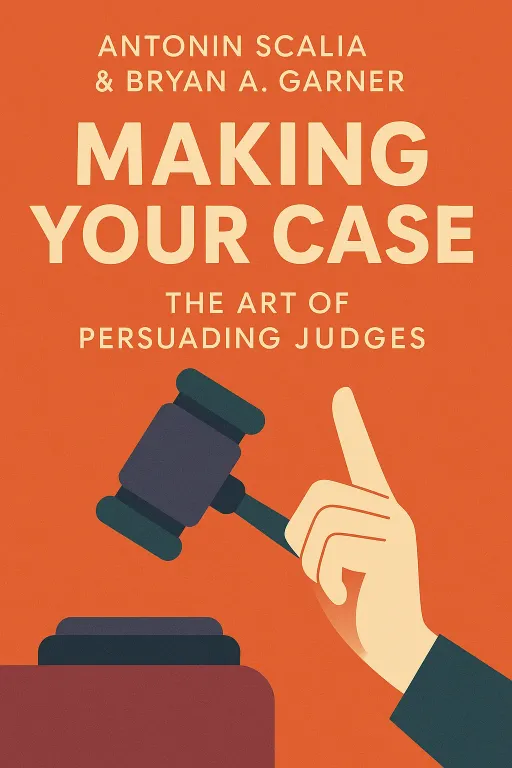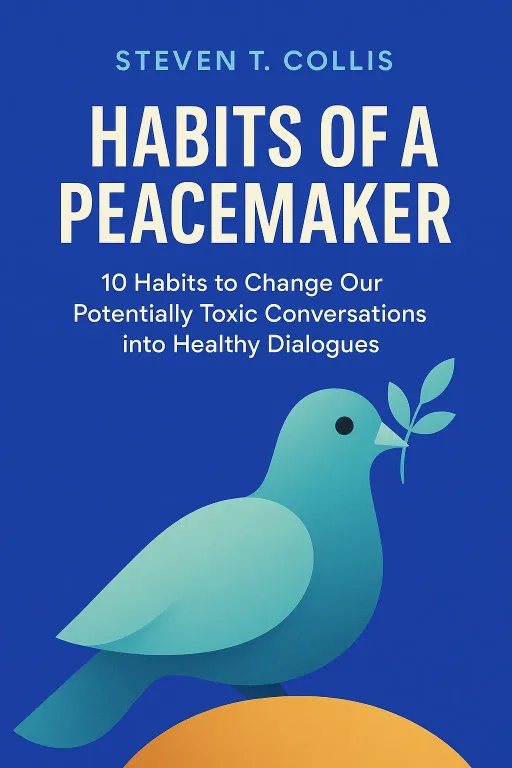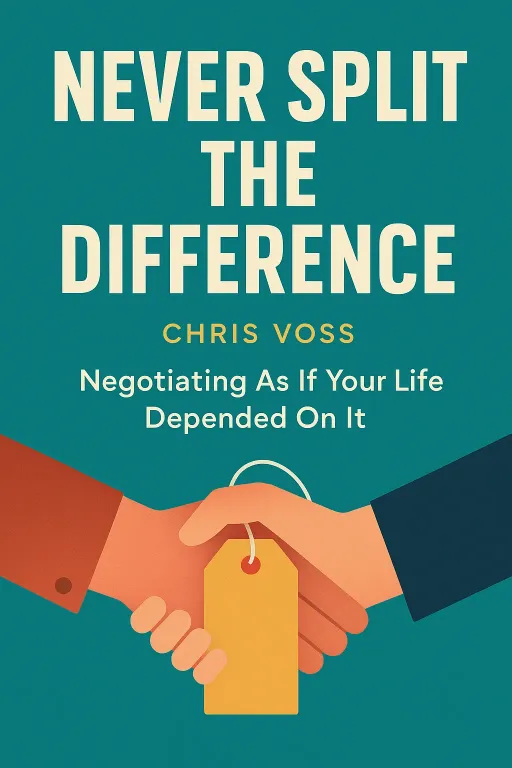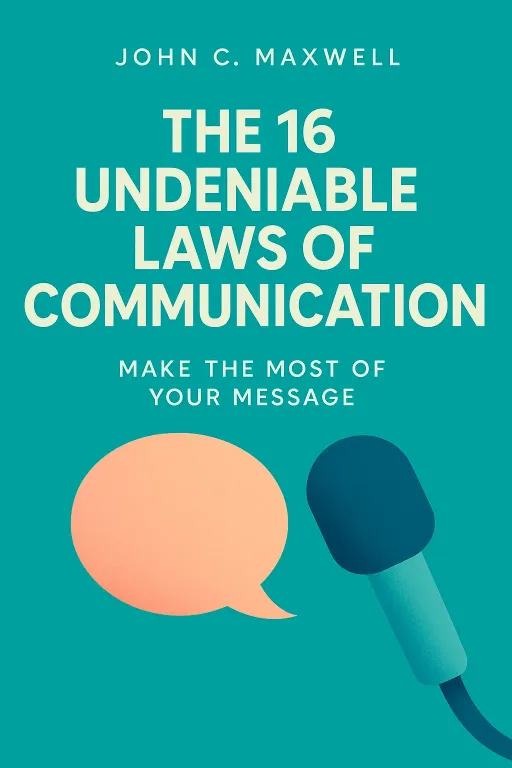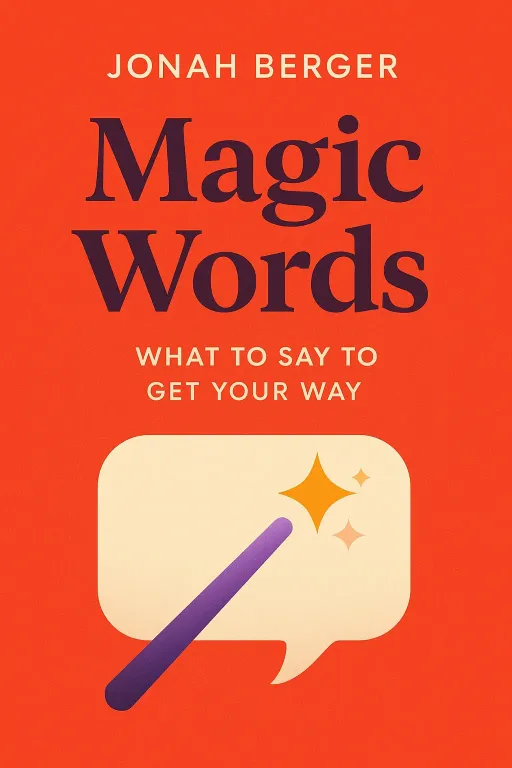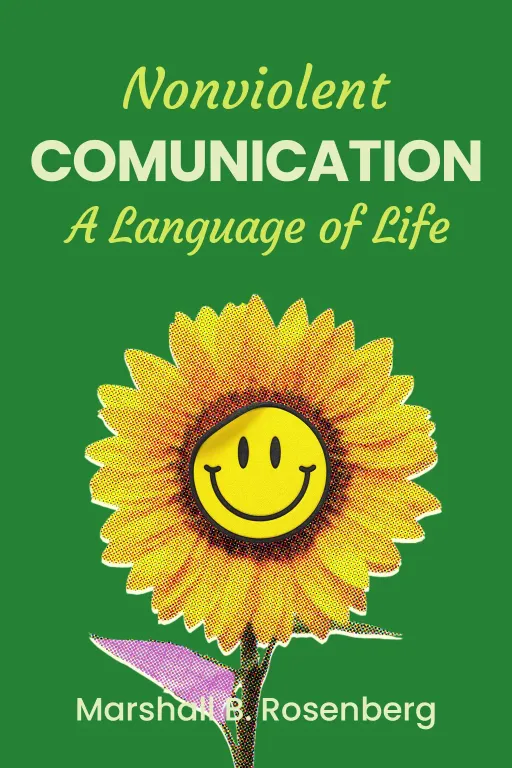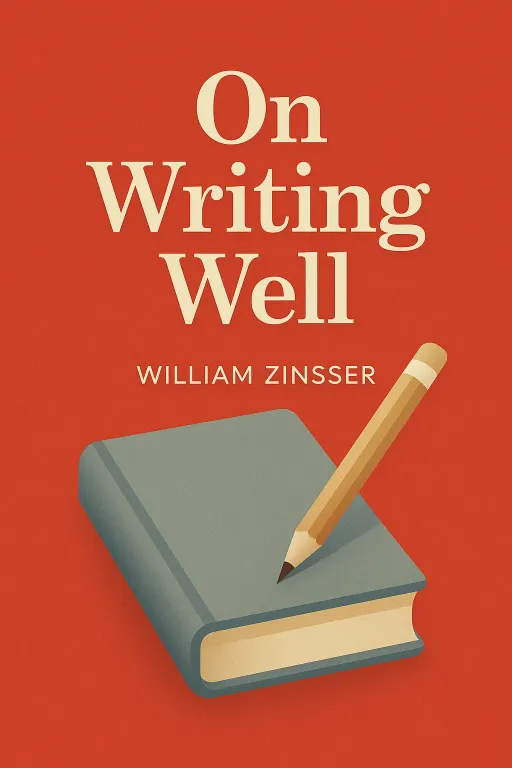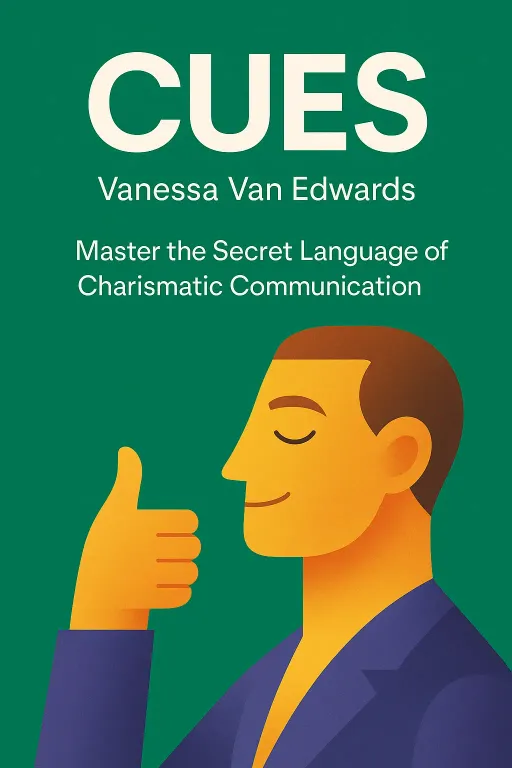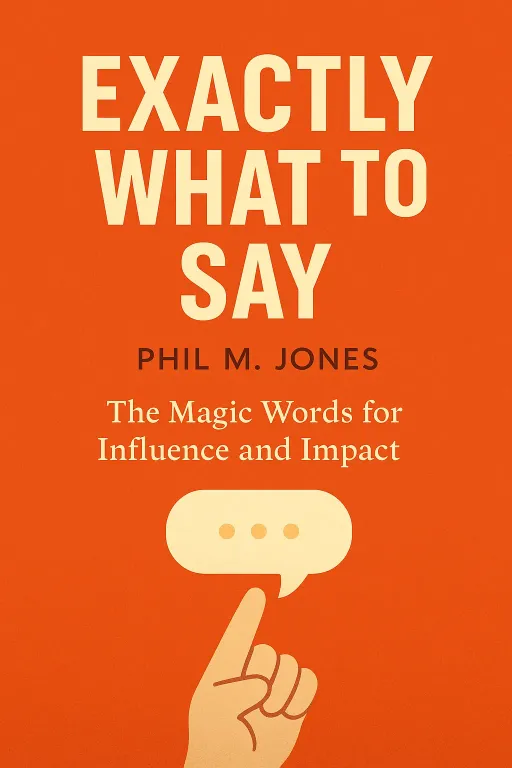
Magic Words or Manipulation?
11 minGolden Hook & Introduction
SECTION
Michelle: Alright Mark, I've got a book for you. Exactly What to Say. What do you know about it? Mark: Let me guess. It's a 200-page book that could have been a single, slightly aggressive email from a sales manager? Michelle: Ha! Not quite, but you've hit on why it's so polarizing. This is Exactly What to Say: The Magic Words for Influence and Impact by Phil M. Jones, who's a massive figure in sales training—he's trained over two million people globally. The book is basically his cheat sheet of 'Magic Words' for influence. Mark: Okay, "Magic Words." That sounds both intriguing and slightly ominous. It’s got this vibe of a secret linguistic spell book. And coming from a sales background, I can’t help but wonder if these are spells for good or for… well, for getting me to buy an extended warranty I don’t need. Michelle: That's the central question, isn't it? The book has a really mixed reception. Readers either see it as a brilliant, practical guide to better communication or as a toolkit for manipulation. Jones argues these are just words that speak directly to the subconscious brain, the part that makes quick, gut-level decisions. Mark: The subconscious. Right. The part of my brain that decides to eat a whole pint of ice cream at midnight. I'm not sure I want salespeople talking to that guy. Michelle: Well, let's see if we can convince you. The core of our podcast today is really an exploration of how tiny, deliberate shifts in language can fundamentally alter the dynamics of a conversation, moving people from resistance to receptiveness. Mark: Alright, I'm listening. But my subconscious and I are on high alert.
The Art of the Open: Bypassing Defenses with Curiosity
SECTION
Michelle: Perfect. Let's start with the hardest part of any difficult conversation: the beginning. How do you even bring something up—an idea, a product, a request—without the other person immediately throwing up a wall? Mark: Usually badly. I either over-explain and sound desperate, or I'm too direct and sound demanding. There’s a lot of fear of that instant 'no.' Michelle: Exactly. And Jones says we go about it all wrong. We try to be forceful when we should be creating curiosity. His first magic phrase is designed for this. It's: "I'm not sure if it's for you, but..." Mark: Huh. That feels... counterintuitive. You're basically leading with uncertainty. Michelle: Precisely. Think about it. When someone says that to you, what happens? The pressure vanishes. They've given you an easy out. Your brain hears 'no pressure,' so your defenses lower. But then the word 'but' comes in, and as Jones points out, 'but' negates everything that came before it. The subconscious message you actually hear is, "You might want to look at this." Mark: I can see that. It piques your curiosity. You lean in and think, "Okay, what is it that might not be for me? Let me be the judge of that." Michelle: The book gives a great example. A sales rep, Sarah, is at a tech conference. Everyone is wary of being pitched. Instead of a hard sell, she approaches a potential client and says, "I'm not sure if it's for you, but would you happen to know someone who is interested in streamlining their project management?" The client, intrigued by this indirect, no-pressure approach, immediately asks for more details for themselves. Mark: Okay, but doesn't that sound a bit... slick? A little passive-aggressive? Like you're pretending not to be selling something when you clearly are. I feel like some people would see right through that. Michelle: It's a fair point, and that's where the 'manipulation' critique often comes in. It depends on intent and delivery. But Jones has another tool for a more direct approach, which I think is even more powerful. He suggests you ask, "How open-minded are you?" Mark: Oh, I like that. That’s a good one. Michelle: It's brilliant, right? Because who wants to say, "Actually, I'm extremely closed-minded, thank you very much"? Nobody. The desired answer is baked into the question. Mark: You're essentially forcing them to align with a positive self-image before you've even made your pitch. To say no to your idea, they first have to contradict their own proclaimed open-mindedness. Michelle: Exactly. The book tells a story about a marketing manager trying to get her change-resistant team to adopt a new, unconventional strategy. She doesn't start with the data or the plan. She starts the meeting by asking, "How open-minded are you about exploring new avenues for client engagement?" Mark: And just like that, she's reframed the entire conversation. It's no longer about 'do you like my idea?'; it's about 'are you the kind of person who is open to new ideas?'. That's a much harder proposition to reject. Michelle: It creates an environment where they feel obligated to at least consider it. It moves them from a hard 'no' to a 'maybe,' which is the first step in any persuasion. Mark: I can see the power in that. It's like a psychological checkmate before the game has even started. But this is definitely where that line between influence and manipulation gets blurry for me. You're leveraging their own ego against them. Michelle: You are. And that's a tension that runs through the entire book. Are you helping people make better decisions, or are you just getting your own way?
Painting the Future: Motivating Action with Emotion and Imagination
SECTION
Mark: That's the perfect question, because it leads right into the next set of tools, which feel like they're all about getting inside someone's head. Once the door is open, how do you get them to see what you see? Michelle: You do it by appealing to their emotions, not their logic. Jones makes a fantastic point: people make decisions based on emotion first, and then justify them with logic later. Something has to feel right before it can make sense. Mark: I know that feeling. I've definitely bought things I couldn't afford because it just felt right at the moment. The logic part of my brain was screaming, but the emotional part was already driving the new car home. Michelle: And that's why the next magic phrase is so potent. It's: "How would you feel if...?" This question invites the person to step into a future scenario and experience the emotions associated with it. Mark: So instead of saying, "This financial plan will make you wealthy," you say, "How would you feel if, this time next year, you were completely debt-free and planning your dream vacation?" Michelle: Exactly. You're not telling them, you're asking them. You're making them generate the positive feelings themselves. The book notes that motivation is simply a 'reason to move,' and people are motivated by two things: moving toward pleasure or away from pain. This phrase lets you paint a vivid picture of that pleasure. Mark: Or the pain. I can imagine a manager asking an employee, "How would you feel if our biggest competitor launched this feature before we did?" That would light a fire under someone pretty quickly. Michelle: It's about creating contrast. The bigger the gap between their current reality and the future you're helping them picture, the stronger the motivation to act. And to make that picture even more vivid, there's another phrase: "Just imagine..." Mark: Ah, the classic. "Just imagine the look on your kids' faces..." Michelle: It's a classic for a reason! Jones says these words are like a command that activates the brain's "image viewer." When you hear "Just imagine," you can't not picture it. The book tells a story of a sales manager motivating a team member by saying, "Just imagine the smiles on your kids' faces when you tell them you've booked a trip to Disneyland." Mark: And the key is, the manager isn't describing the smiles. He's letting the employee's own mind create the most powerful, personal, and vivid image possible. The employee is building the case for the manager. Michelle: That's the secret. You allow the power of the other person's creative mind to build your case for you. It's far more effective than anything you could describe. You're not just selling a sales target; you're selling a scene from their own future movie. Mark: That's powerful, and maybe a little scary. The responsibility to use that ethically is huge. You're tapping directly into someone's deepest hopes and dreams.
The Gentle Close: Handling Objections and Guiding Decisions
SECTION
Michelle: It is powerful. But what happens when that vision isn't enough, and they still say no, or the dreaded, "I need some time to think about it"? Mark: Ugh, the classic stall tactic. Which usually means "I'm going to forget about this the second you walk away." Michelle: Right. Jones says at this point, the other person has taken control of the conversation. To regain it, you need to handle their objection. But not by arguing. You use another magic phrase: "What makes you say that?" Mark: I like that. It's not argumentative. It's genuinely curious, even if it's a strategic curiosity. It forces them to move beyond a generic excuse and articulate the real reason. Michelle: It does. It shifts the burden of explanation back to them. If they say, "It's too expensive," and you ask, "What makes you say that?" they have to explain their reasoning. Maybe they're comparing it to a different product, or maybe they have a budget constraint you didn't know about. You get the real information you need to actually solve the problem. Mark: It turns an objection from a dead end into a doorway to a deeper conversation. That feels a lot more collaborative. Michelle: But what if the conversation is truly over, and you've gotten a hard 'no'? Jones has one last trick up his sleeve, and it's my favorite in the whole book. He calls it the "Columbo Method." Mark: Oh, this I have to hear. The rumpled detective in the trench coat? Michelle: The very same. Columbo's genius was that he would finish his interview, the suspect would relax, thinking they'd gotten away with it. He'd turn to leave, get to the door, and then... he'd turn back with his signature line. Mark: "Oh, just one more thing..." Michelle: Exactly. And that "one more thing" was always the killer question. Jones says you can create your own "Columbo Moment." The meeting is over, you've failed to get the big commitment. You pack up your bag, you shake their hand, you head for the door. Their guard is completely down. Then you turn back and say, "Just one more thing..." Mark: And what's the "one more thing"? Michelle: It's the downsell. It's the smaller, easier-to-accept offer. The book gives an example of trying to sell a huge, long-term software contract. The CEO says no. You're on your way out the door, and you turn back: "Just one more thing... while the full contract might not be right for you now, would you be open to a small, no-risk trial for just one of your departments?" Mark: That is brilliant. The pressure is completely off. The main negotiation is over. This new request feels like a tiny, reasonable afterthought. It's a genius move because the social script of the 'big meeting' has already ended. Michelle: It's a way to avoid leaving with nothing. You turn a total loss into a small win that keeps the door open for the future. It’s the art of salvaging an opportunity from the jaws of defeat.
Synthesis & Takeaways
SECTION
Mark: Wow. When you lay it all out like that, from opening the door to the Columbo close, you really see the architecture behind it. It’s a complete system. Michelle: It is. And ultimately, what Jones is arguing is that influence isn't about having the best facts or the most logical argument. It's about managing the emotional and psychological state of the conversation. You're not just talking; you're directing a mental experience for the other person. Mark: And I think the takeaway for me is that these 'Magic Words' are tools. Like any tool, they can be used to build something great or to manipulate. The book gives you the 'what,' but it's up to the user to supply the 'why' and the 'how' with integrity. Using "How open-minded are you?" to help a team embrace a positive change is one thing; using it to pressure someone into a bad decision is another. Michelle: That's the perfect summary. The power is neutral; the application is what matters. And for anyone listening who's intrigued, maybe the challenge is to just pick one of these phrases this week. Don't try to become a master persuader overnight. Just try one. Mark: Which one would you recommend starting with? Michelle: I think "How open-minded are you?" is a great one. It’s versatile and can be used in low-stakes situations with your partner, your kids, or your colleagues. Just see how it changes the dynamic of a single conversation. Mark: I might try that. And for our listeners, let us know how it goes! We're curious to hear if it felt powerful or just plain awkward. Find us on our socials and share your story. We'd love to hear about your own Columbo moments. Michelle: This is Aibrary, signing off.
